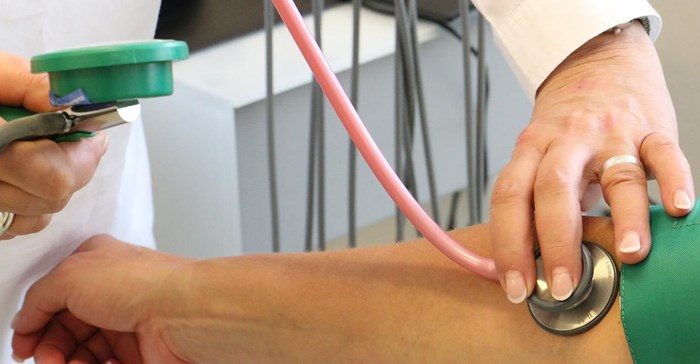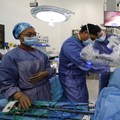The 2022 African cardio oncology conference hosted by the Cardio Oncology Society of Southern Africa (Cososa) recently emphasised early identification of cardiotoxicity risk and multidisciplinary collaboration at its recent meeting, attended by leading local and international experts.
“It is no use successfully treating cancer, only to allow the cancer patient to succumb to a cardiac event,” says convenor of the meeting, cardiologist and cardiooncologist Dr Y.T. (Trishun) Singh of the cardio oncology centre at Netcare uMhlanga Hospital, the first such unit to be established in Southern Africa.
International attendees included the president of the British Cardio Oncology Society, Professor Alexander Lyon of the Royal Brompton Hospital in London, United Kingdom; Dr Susannah Stanway of the Royal Marsden Hospital in London; and Professor Sebastian Szmit, president of Cardio Oncology, Poland.
“The inaugural Cososa meeting was held just before South Africa entered the first Covid-19 hard lockdown on 7 March 2020. We are very pleased that this second meeting could be hosted in a hybrid format, allowing our colleagues from beyond our borders and around the world to participate through in-person or virtual attendance,” says Singh.
“Internationally, cardio oncology is well established as a field of medicine with specialised units in North America, Europe, Asia and Australia,” points out Singh, who is the only International Cardio Oncology Society (Icos) certified cardio oncologist in Southern Africa.
“In Southern Africa we have a great need to develop more capacity by establishing more cardio oncology centres and developing local expertise."
Oncologists, haematologists, and cardiologists would benefit from skills that would enable them to implement cardio oncology principles in the daily practices of cancer care.
”Topics covered during the 2022 conference, held at the Premier Hotel uMhlanga in Durban, included:
Cardiotoxicity of cancer therapy and early recognition;Baseline cardio oncology assessment of the patient before commencing chemotherapy or radiation;Thromboembolism and anticoagulation in cancer patients;The need for a multidisciplinary approach in cancer treatment with particularly close co-operation between the cardio oncologist and oncologist;How to establish a cardio oncology centre in South Africa or elsewhere on the African continent; andImaging tools in cardio oncology.“With earlier detection and more advanced treatments, oncology medicine is increasingly successful in treating paediatric and adult cancer patients with modern chemotherapy, radiotherapy, or in combination,” Singh says.
“Nearly all classes of chemotherapy and radiation to the chest may have side effects that put patients at greater risk of heart problems, known as cardiotoxicity.
Cardiotoxicity does not just involve the heart muscle, but may also include heart rhythm disturbances, the vasculature (arteries and veins), heart valves, pericardium, and conduction system.
Wendell Roelf and Olivia Kumwenda-Mtambo 22 Jul 2022 "Cardiotoxicity in people being treated for cancer is aggravated if underlying cardiac disease already exists, or if the patient has comorbidities such as diabetes, hypertension, or dyslipidaemia,” he explains.
"The Cososa meeting emphasised that all patients due to have potentially cardiotoxic cancer therapy must have a baseline cardio oncology assessment by an appropriately skilled cardiologist.
“Following the guidelines and protocols by recognised cardio oncology societies such as Icos, ongoing cardio oncology assessment during cancer therapy and post-therapy surveillance is considered mandatory,” Singh says.
“The damage to the heart muscle, heart valves, coronary arteries and pericardium due to radiation to the chest, can manifest a few years after completion of chest radiation and these patients need careful surveillance as guided by the protocols.
“We also observed that childhood cancer survivors need very careful post-therapy surveillance, as they may present many years later with premature heart failure and ischaemic heart disease,” Singh says.
Cososa also resolved that a basic foundation in cardio oncology should be introduced in cardiology, oncology and haematology fellowship training programmes, and cardiologists must have at least a level two cardio oncology training and certification to provide cardio oncology opinions for cancer patients.
“It is imperative that cardio oncologists, oncologists and haematologists work together for better outcomes for people being treated for cancer. The earlier high-risk cancer patients are identified for cardiotoxicity, the sooner therapy to mitigate against cardiotoxicity can be started.
“Now that Covid-19 is settling, Cososa can pursue our teaching programme, sharing awareness and upskilling all those who are involved in cancer care about cardio oncology for better long-term outcomes for cancer patients,” Singh concluded.







































